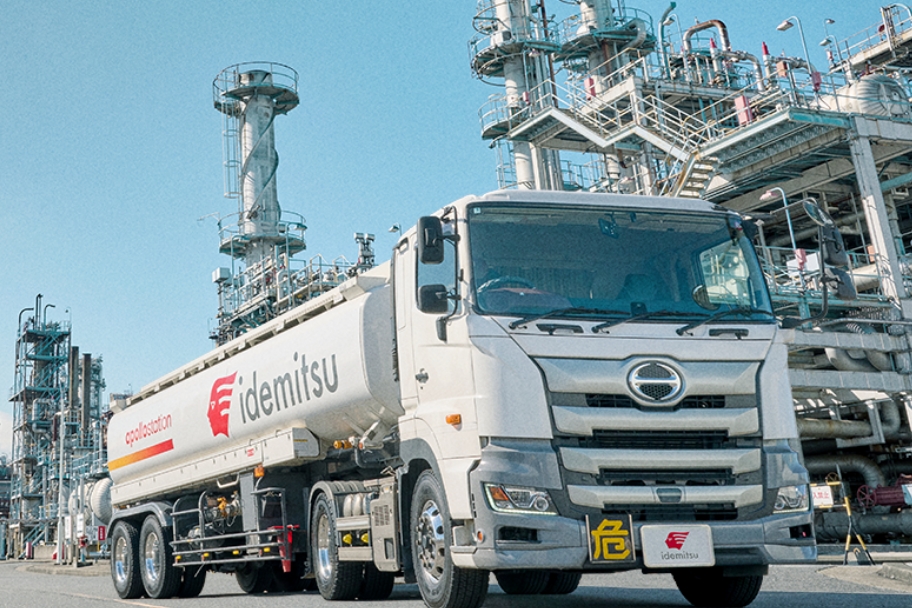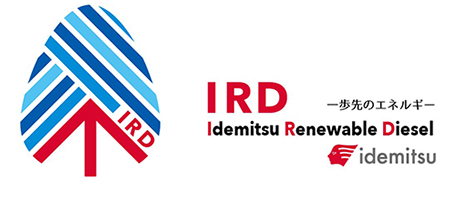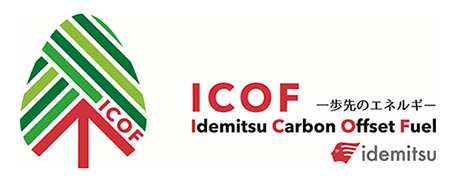Low carbon Petroleum
Idemitsu Kosan is working to provide a stable supply of diverse, environmentally friendly, low-carbon energy in order to realize the energy transition.
SAF (Sustainable Aviation Fuel)

The international air transport industry is considering specific measures to achieve the goal set by ICAO (International Civil Aviation Organization) of "restricting CO₂ emissions from 2021 onwards to the level of CO₂ emissions in 2019" as a measure against climate change. As one of the measures, there are strong hopes for the introduction and use of SAF (Sustainable Aviation Fuel).
We are working to secure raw materials and transportation routes with the aim of establishing a domestic supply system of 500,000 KL per year by 2030.
-
As of April 11, 2024
Synthetic fuel

synthetic fuel is a liquid fuel produced by synthesizing CO2-free hydrogen and CO2. Although it emits CO2 when used as fuel, it is a next-generation energy source that is thought to cause almost no increase in CO2 in the atmosphere because it uses CO2 itself as a raw material. We are considering procuring synthetic fuel overseas, and aim to establish a production and supply system for synthetic fuel in Japan by 2030.
We are working to build a supply system for e-methanol, a type of synthetic fuel. Not only can e-methanol be used as a marine fuel, but it can also be used as a raw material to produce jet fuel, gasoline, and chemical raw materials, contributing to the decarbonization of many sectors.
-
As of November 18, 2024
Click here for our initiatives including SAF and synthetic fuel
Biofuels


Biofuels are a form of renewable energy produced from resources such as plants, food waste, agricultural residues, and waste materials. Because the plants used as raw materials absorb CO₂ from the atmosphere during their growth, biofuels are regarded as carbon-neutral energy sources.
Our company is working to promote the social implementation of various biofuels, including Renewable Diesel (RD)—a promising alternative to conventional diesel fuel—B5 Diesel, which contains up to 5% biodiesel, and Bio Heavy Oil for marine use, which similarly blends biodiesel.
Carbon Offset fuel

A carbon credit refers to a right issued for the reduction effects of CO₂ and other greenhouse gases achieved through activities such as forest conservation, reforestation, and the introduction of energy-saving equipment by companies. During the transition period toward decarbonization, our company contributes to our customers’ carbon offset efforts by supplying fuels bundled with carbon credits to compensate for CO₂ emissions that are difficult for them to reduce.
As part of this initiative, we offer two types of products: “Idemitsu Carbon Offset Fuel,” which includes voluntary carbon credits (credits issued by private sectors or NGOs), and “Idemitsu Carbon Offset Fuel J,” which includes J-Credits (government-certified credits) that can be used under the Act on Promotion of Global Warming Countermeasures for calculating, reporting, and disclosing greenhouse gas emissions. In particular, as initiatives toward decarbonization accelerate through frameworks such as the GX League, the value of fuels with J-Credits is increasing. “Idemitsu Carbon Offset Fuel J” serves as an energy solution that simultaneously achieves environmental measures and enhances corporate value, supporting decarbonized management. By selecting the appropriate product according to each use case, we help fuel users advance their decarbonization efforts and improve their corporate value.
